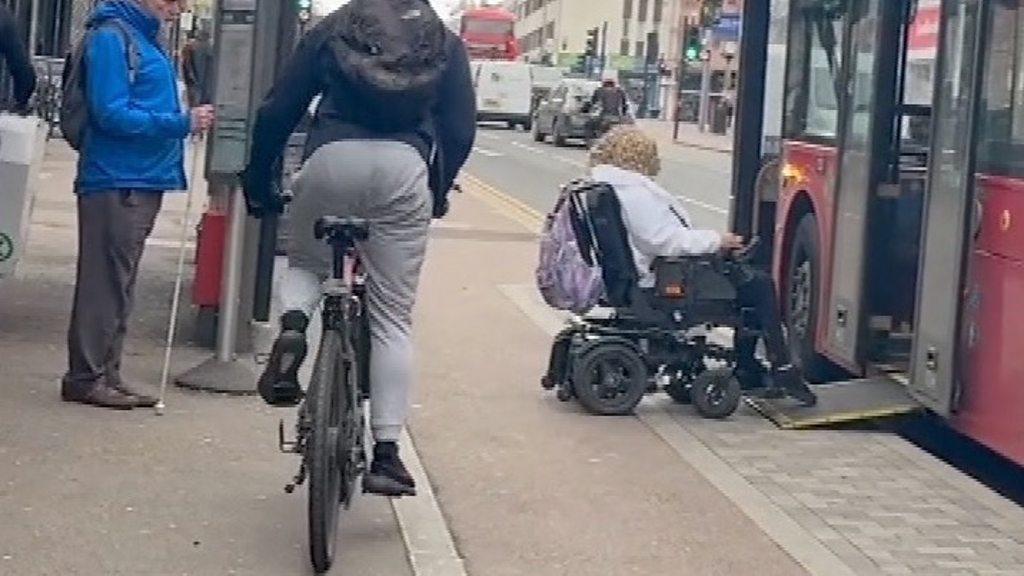Floating bus stops are terrifying - campaigner
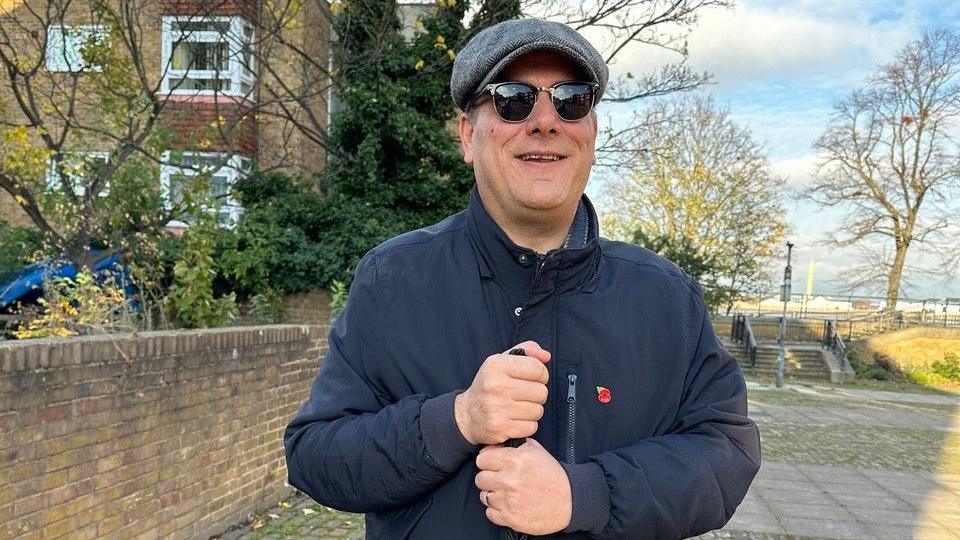
Simon Kennedy's white cane was broken by a cyclist when he used a floating bus stop
- Published
A partially-sighted man has described so-called floating bus stops as "terrifying" after his cane was broken by a cyclist leaving him stranded at one.
Simon Kennedy said the incident in Greenwich led to him moving out of London.
He is backing a national campaign calling for an end to floating bus stops, which have a cycle lane between the stop and the pavement.
Transport for London (TfL), which has funded 164 of the stops, says the chance of being injured by a cyclist at a bypass is "very low".
A Department for Transport spokesperson said: "The safety and accessibility of our roads and pavements is an absolute priority."
On Monday, the National Federation of the Blind of the UK (NFBUK) will hand a petition in to 10 Downing Street calling for an immediate moratorium on all planned floating bus stops and shared use bus boarders in new cycle lanes across the UK.
The charity has called their designs "chaotic, confusing and dangerous places which are not safe or accessible for blind and visually impaired people to use independently".
The petition has support from more than 285 organisations across the UK.
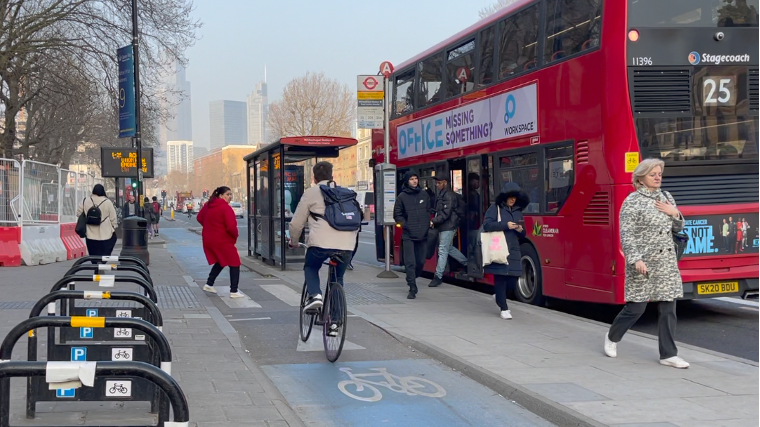
A floating bus stop in Whitechapel requires a pedestrian to cross a cycle lane to reach the bus
'Hazards'
Mr Kennedy, who is visually impaired, said he now lives in Northampton because of what happened to him.
"I started to become a bit of a recluse," he said.
"I don't understand how they can be deemed safe for anybody.
"Think about the elderly with shopping trollies and parents with buggies and children," he said.
"There's all these hazards, it's just a nonsense."
Mr Kennedy said he was not "anti-cyclist", as they could also get injured.
After his cane was broken, it "set off an awful lot of anxieties", he said.
"I will never go anywhere where I have to use a floating bus stop.
"It's just not worth the risk."
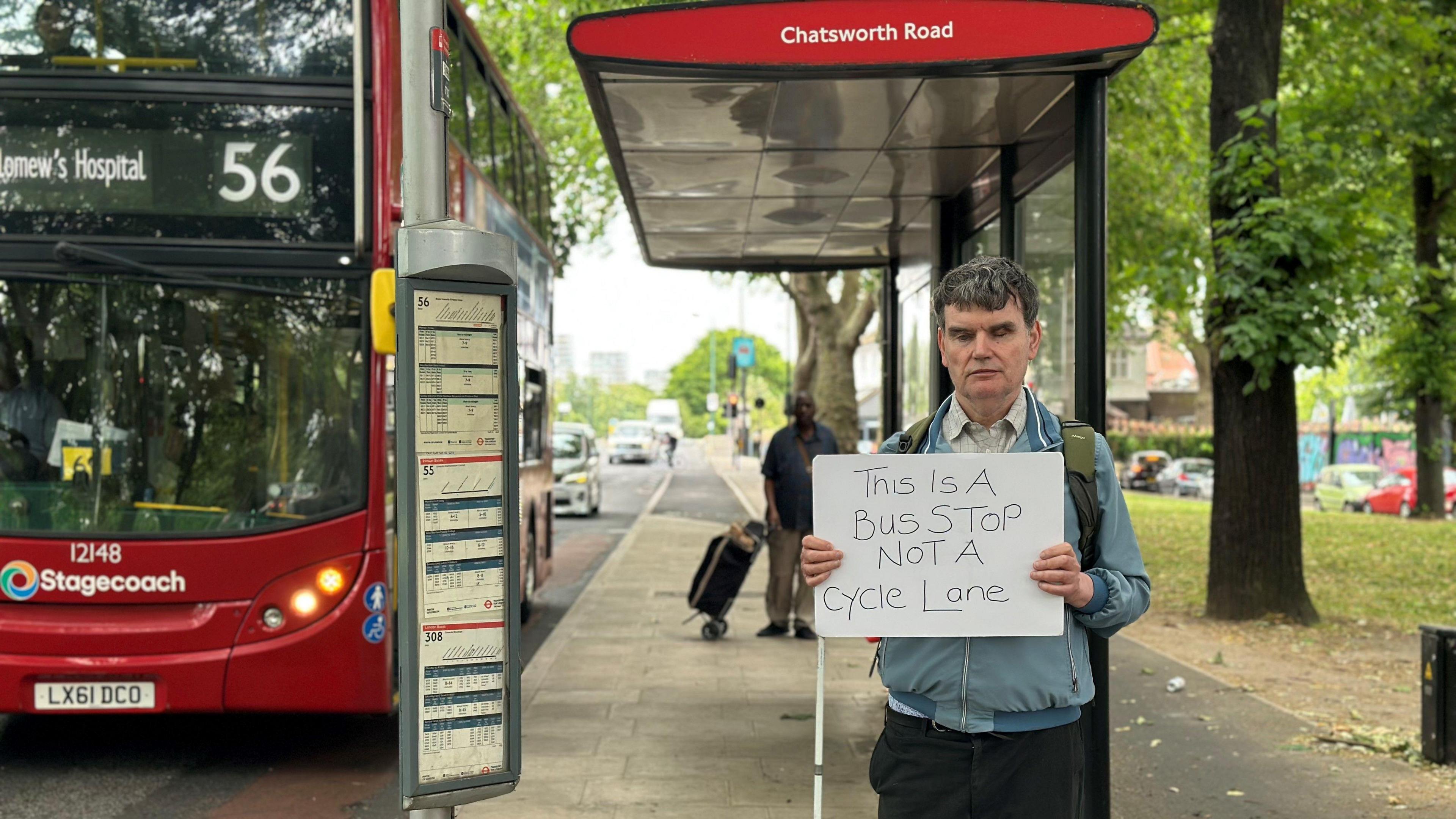
Andrew Hodgson, former president of NFBUK, at a floating bus stop on Lea Bridge Road in east London
A Transport for London (TfL) bus stop bypass safety review, external, published in June, found that more than a third of bus stop bypasses varied significantly from its best practice design guidance.
This included several bus stop bypasses with incorrect tactile paving, no zebra crossing or a bus stop island that was too narrow, TfL said.
It recognised that "some disabled people" were concerned about the inconsistent designs, but added that the risk of pedestrians being injured at bus stop bypasses was "very low".
Five pedestrian casualties involving cyclists and one involving an e-scooter rider at bus stop bypasses were recorded over a three-year period, it said.
"Every casualty on London’s streets is unacceptable and needs to be prevented," the report said.
"However, the chance of being injured by someone cycling at a bus stop bypass is very low compared to the chance of being injured by a driver on the wider network."
Helen Cansick, TfL's head of healthy streets investment, said they had met with NFBUK to discuss floating bus stops and collision data.
"Our recent report found that very few collisions have occurred at bus stop bypasses, and our analysis also suggests that they have not led to a reduction in bus stop use by older or disabled customers," she said.
"We continue to work with disabled people and accessibility groups to reflect on the findings of our review, including looking at design improvements and upgrades where necessary, and measures to increase awareness among cyclists.
"We will continue to work with all Londoners to ensure that our transport network works for everyone."
The DfT also said it would work with disability groups and local authorities to ensure all safety concerns were taken seriously.
Listen to the best of BBC Radio London on Sounds and follow BBC London on Facebook, external, X, external and Instagram, external. Send your story ideas to hello.bbclondon@bbc.co.uk, external
- Published15 May 2024
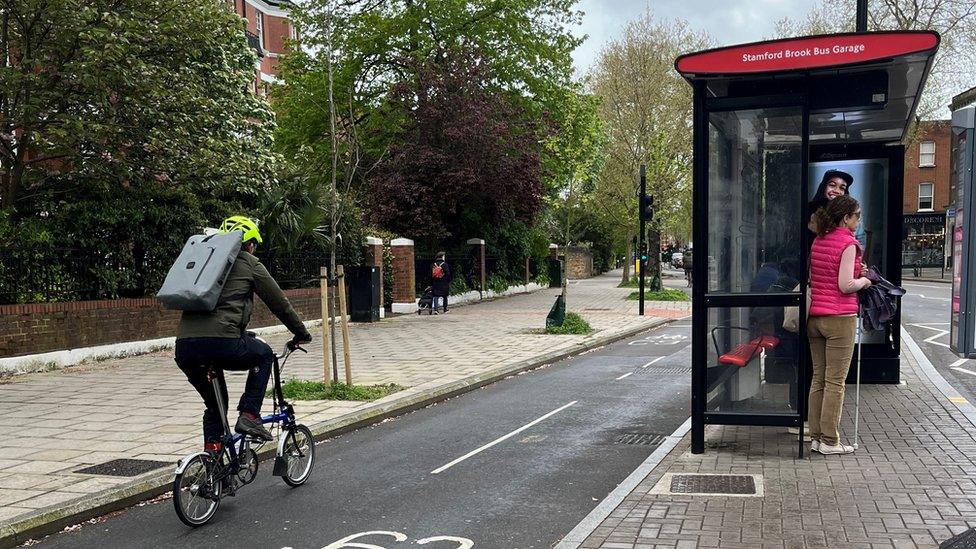
- Published9 March 2024
